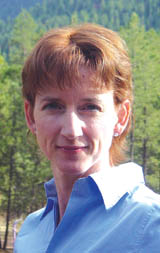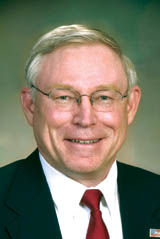| Lord | Gardner | |
|---|---|---|
 What is your career (other than politics)? If you are not currently elected to a state office, where do you work? If you are elected to a state office, where did you work?
What is your career (other than politics)? If you are not currently elected to a state office, where do you work? If you are elected to a state office, where did you work?
Before my children were born, I worked as a contract specialist for the Department of Defense in Maryland, and later as a cost analyst for the National Aeronautics and Space Administration (NASA) at Johnson Space Center. Once my children began to enter school, I started volunteering in their classrooms. At times, our family financial situation or personal interest have put me back in the work force. Political background – elected office and/or years working for the party? In 2003 I was elected to the Board of Education for Manitou Springs District 14, where I serve a treasurer and legislative liaison. In 2005, I was elected as a representative for Region Six, an area that includes school districts from northern Colorado Springs, west to Leadville and south to La Veta RE-2. Members of immediate family (wife/husband, children)? Husband: Tom Lord (married 17 years). Children: Colin, 14; Sean, 12; Emily, 10. Your position on Westside Highway 24? I agree with the residents and business owners in the Westside, who prefer the idea of a parkway rather than a high-speed freeway. I hope to see a plan devised that eases traffic congestion and decreases driving time, by reworking interchanges and retiming traffic lights, with minimal disruption to property owners. Manitou and Old Colorado City are prime tourist and shopping destinations, and an attempt to beautify that important access route would also be beneficial. Can anything be done at the state level to help small, independently owned businesses (as on the Westside) be more successful? If so, what? I am concerned about, and would like to address the effect of the Gallagher Amendment on the disproportionate property tax burden on Colorado's businesses, and how taxes such as school district mill levy increases have a triple effect on local business owners. I also believe that programs to promote the Colorado tourism industry are a legitimate use of public funds, and believe that promoting tourism would help small, independently owned businesses on the Westside. Can more be done at the state level to help improve the effectiveness of public schools that have high percentages of disadvantaged children (as on the Westside)? If so, what? Smaller classes, early childhood intervention, preschool and breakfast programs and after-school tutoring all have been shown to help raise the achievement of disadvantaged children. Unfortunately, all these programs require money and our schools are facing cost increases that outpace funding increases. I hope to address the often-redundant levels of testing and reporting required and look for a more streamlined structure that allows districts to save manpower and other resources, allowing schools to operate more efficiently. Any issues you think are important that might have a direct impact on the Westside? If so, what? The Front Range area is growing at three times the national average. With this rapid growth, it is easy to focus on new infrastructure, but we must continue to maintain our ageing infrastructure as well. The Westside is an established part of the city, and its needs are in constant danger of being overlooked in the planning for transportation, infrastructure maintenance and water. |
 What is your career (other than politics)? If you are not currently elected to a state office, where do you work? If you are elected to a state office, where did you work?
What is your career (other than politics)? If you are not currently elected to a state office, where do you work? If you are elected to a state office, where did you work?
I am an attorney with my own law practice. Political background – elected office and/or years working for the party? Chairman, El Paso County Republican Party (1993-1997); general counsel, Colorado Republican Party (1993-1997); campaign manager for several Republican candidates for state and local office. Members of immediate family (wife/husband, children)? Wife: LeAnn (Married 28 years). Children: Robert Jr, 24; Laura, 17. Your position on Westside Highway 24? Improvement of Westside Highway 24 is critical for the community including the Westside. But, it must be done with the greatest possible consideration for existing businesses and homes on the Westside. It is probably impossible to build the necessary improvements without some impact on the Westside, but these impacts can be minimized with a full public process allowing the Westside neighborhood to be heard fully on the issue. Can anything be done at the state level to help small, independently owned businesses (as on the Westside) be more successful? If so, what? First, we can eliminate the business personal property tax at the state level so that businesses are not taxed annually and repeatedly on the equipment and other personal property they own. Also, we need to do everything possible to allow small businesses to access affordable health care for themselves and their employees. Finally, we must always ensure that excessive government regulation does not make it impossible for small businesses to survive. Can more be done at the state level to help improve the effectiveness of public schools that have high percentages of disadvantaged children (as on the Westside)? If so, what? We can and must do more. First, empower parents by increasing the educational choices for their children. The state can provide incentives to school districts to adopt changes that make a difference, such as assigning the best teachers to neighborhoods with at risk children; putting more money in classrooms; rewarding teachers who perform successfully; adopting site- based management to promote accountability; and promoting parental involvement, which is the most critical factor in student success. Any issues you think are important that might have a direct impact on the Westside? If so, what? An issue that has a direct impact on Westside residents and all Coloradoans is the availability of water. We lose over a million acre feet of water every year to other states because we do not have the storage capacity. For the economic health and vitality of the entire state, we must create new storage and delivery capacity to support both our cities and our agricultural needs through the 21st century and beyond. |